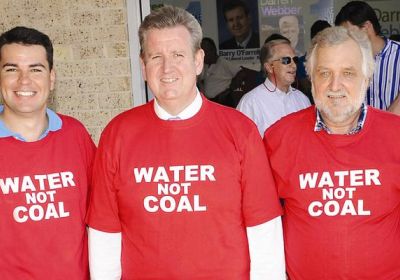
-
 One of the most important initiatives that can be taken to revitalise manufacturing in NSW is to implement policies that will encourage the rapid development of renewable energy products. The one thing we should not be doing is developing new coalmines.
One of the most important initiatives that can be taken to revitalise manufacturing in NSW is to implement policies that will encourage the rapid development of renewable energy products. The one thing we should not be doing is developing new coalmines. -
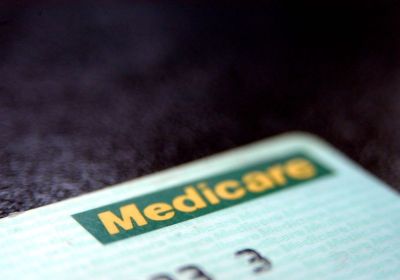
Terry Barnes, a former adviser to Prime Minister Tony Abbott, is credited with coming up with the bright idea of introducing a $6 payment when people visit their GP.
-
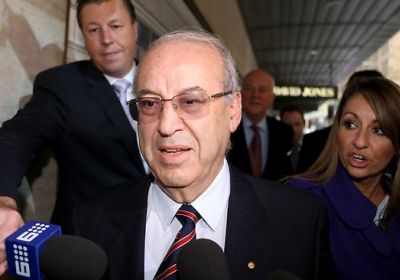
Institutionalised corruption in New South Wales stretches from the Rum Corps of the late 18th century to present-day politicians from the Labor and Liberal parties. The pattern has been consistent: public exposure, followed by the confected outrage of “shocked” politicians that comes with contrite promises of reforms. After a suitable time has elapsed, the cycle repeats.
-
After the collapse of Ansett Airlines and National Textiles in 2001 — both of which owed their employees millions of dollars in unpaid entitlements — the then-John Howard government was forced to introduce legislation establishing the General Employee Entitlements and Redundancy Scheme, which guaranteed basic entitlements for workers if a company went broke.
-
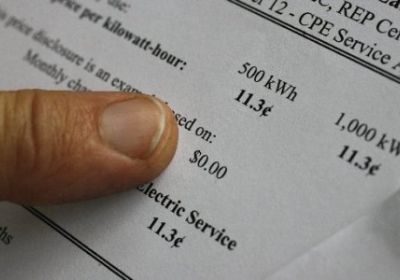 Australia’s central bank, the Reserve Bank of Australia, gets its powers from the Reserve Bank Act (1959). Its two primary functions are to ensure the stability of the currency and the provision of full employment. Besides managing Australia’s gold and foreign exchange reserves, it supposedly meets these objectives by setting the cash rate to meet an agreed medium term inflation rate, which is now set at a target band of 2% to 3%.
Australia’s central bank, the Reserve Bank of Australia, gets its powers from the Reserve Bank Act (1959). Its two primary functions are to ensure the stability of the currency and the provision of full employment. Besides managing Australia’s gold and foreign exchange reserves, it supposedly meets these objectives by setting the cash rate to meet an agreed medium term inflation rate, which is now set at a target band of 2% to 3%. -
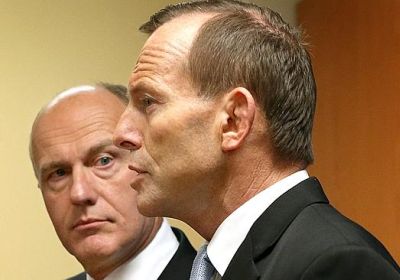 In its written submission to the four-yearly review of the award system, the federal government has called on the Fair Work Commission to introduce comprehensive changes that will include cuts to minimum award rates of pay and conditions.
In its written submission to the four-yearly review of the award system, the federal government has called on the Fair Work Commission to introduce comprehensive changes that will include cuts to minimum award rates of pay and conditions. -
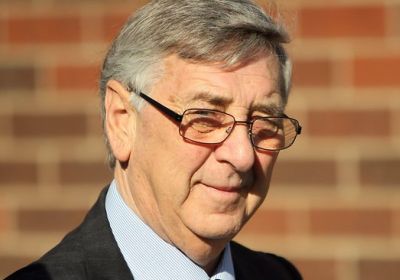 Gunns Limited, the Launceston-based company that made a fortune turning Tasmanian forests into woodchips for Japanese papermakers, has had a long relationship with Tasmanian premiers and government ministers. In 1989, the chairman of Gunns, Edmund Ruse, was convicted by a Royal Commission of trying to bribe Labor MP Jim Cox into crossing the floor to allow the pro-logging Liberal Party headed by Robin Gray to assume power.
Gunns Limited, the Launceston-based company that made a fortune turning Tasmanian forests into woodchips for Japanese papermakers, has had a long relationship with Tasmanian premiers and government ministers. In 1989, the chairman of Gunns, Edmund Ruse, was convicted by a Royal Commission of trying to bribe Labor MP Jim Cox into crossing the floor to allow the pro-logging Liberal Party headed by Robin Gray to assume power. -
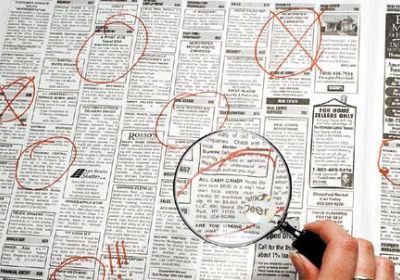 The one thing that we can expect with some confidence this year is an increase in unemployment. An analysis of Australian employment statistics for 2013 shows that jobs growth was at its lowest level for more than 20 years. Last year, unemployment increased by more than 5000 people a month. In the month of December, the economy lost 23,000 jobs, making last year the weakest calendar year of jobs growth since 1992. The number of officially unemployed increased by more than 9% to 722,000.
The one thing that we can expect with some confidence this year is an increase in unemployment. An analysis of Australian employment statistics for 2013 shows that jobs growth was at its lowest level for more than 20 years. Last year, unemployment increased by more than 5000 people a month. In the month of December, the economy lost 23,000 jobs, making last year the weakest calendar year of jobs growth since 1992. The number of officially unemployed increased by more than 9% to 722,000. -
 When the NSW Independent Commission Against Corruption (ICAC) found that former union official, John Maitland, and former NSW ALP minister for primary industries, Ian Macdonald, had engaged in corrupt conduct over the granting of a coal exploration licence at Doyles Creek, they said the licence was tainted by corruption and should be declared void.
When the NSW Independent Commission Against Corruption (ICAC) found that former union official, John Maitland, and former NSW ALP minister for primary industries, Ian Macdonald, had engaged in corrupt conduct over the granting of a coal exploration licence at Doyles Creek, they said the licence was tainted by corruption and should be declared void. -
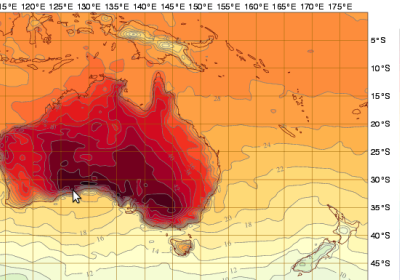 The Bureau of Meteorology’s Annual Climate Statement issued on January 3 confirmed that last year was the hottest year on record in Australia. Average temperatures were 1.2 degrees above the long-term average. Every month of the year had national average temperatures at least 0.5C above normal. The previous record was set in 2005 when the long-term average was up by 0.17C.
The Bureau of Meteorology’s Annual Climate Statement issued on January 3 confirmed that last year was the hottest year on record in Australia. Average temperatures were 1.2 degrees above the long-term average. Every month of the year had national average temperatures at least 0.5C above normal. The previous record was set in 2005 when the long-term average was up by 0.17C. -
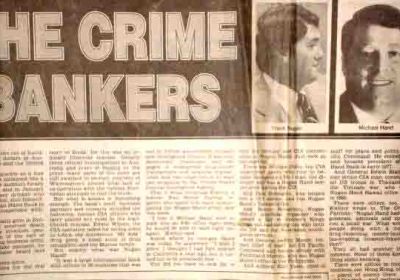
In early February 1978, on the strength of a claimed turnover of $1 billion, the Australian Financial Review reported that “at this sort of growth rate Nugan Hand will soon be bigger than BHP.”
-
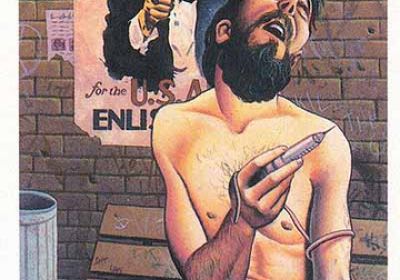 When Japanese forces occupied French Indochina in 1941, it was not entirely without French opposition. But for the most part it was close to business-as-usual for the French in Vietnam. Japan left the French colonial administration intact, beholden now to Tokyo rather than Paris. It was oppression-as-usual for the Vietnamese, 2 million of whom Japanese forces starved to death in 1944.
When Japanese forces occupied French Indochina in 1941, it was not entirely without French opposition. But for the most part it was close to business-as-usual for the French in Vietnam. Japan left the French colonial administration intact, beholden now to Tokyo rather than Paris. It was oppression-as-usual for the Vietnamese, 2 million of whom Japanese forces starved to death in 1944.